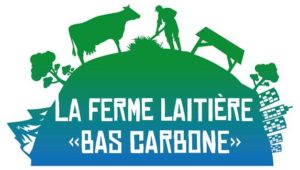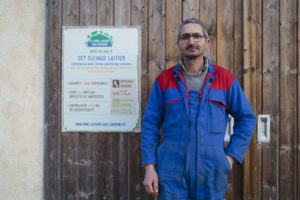 « Ferme laitière bas carbone », literally Low Carbon Dairy Farm aims to promote agricultural practices and actions to reduce by 20% the carbon footprint of milk production by 2025. This French approach is led by the CNIEL (National Interprofessional Centre for the Dairy Economy), in partnership with the Livestock Institute, France Conseil Élevage and the Chambers of Agriculture.
« Ferme laitière bas carbone », literally Low Carbon Dairy Farm aims to promote agricultural practices and actions to reduce by 20% the carbon footprint of milk production by 2025. This French approach is led by the CNIEL (National Interprofessional Centre for the Dairy Economy), in partnership with the Livestock Institute, France Conseil Élevage and the Chambers of Agriculture.
In Auvergne-Rhône-Alpes, the farm Croix Pomiers that groups 85 Montbéliardes cows, carries out actions to increase the food autonomy of livestock farming through by implementing rotational grazing, increasing the share of legumes, with certain impacts for the reduction of chemical inputs. Still in this region, the farm of Sully has managed to reduce fertiliser inputs by 33% and to increase its food autonomy by cultivating alfalfa and chicory.
Agricultural production and climate change are intrinsically connected and are both influenced by each other. In mountain areas, the effects of climate change on milk production have been studied by the CNIEL in the CLIMALAIT programme (2015-2019). Some solutions promoted in the framework of CLIMALAIT as tools for adapting to climate change are also used in the framework of the ‘Low Carbon Dairy Farm’ approach as actions to reduce the climate impact of dairy production. Food autonomy and reduction of chemical inputs, among others, can therefore be levers for both adaptation and mitigation of climate change in mountain areas.
Find out in our good practice how milk production in the mountains can contribute to climate change mitigation and adaptation.











